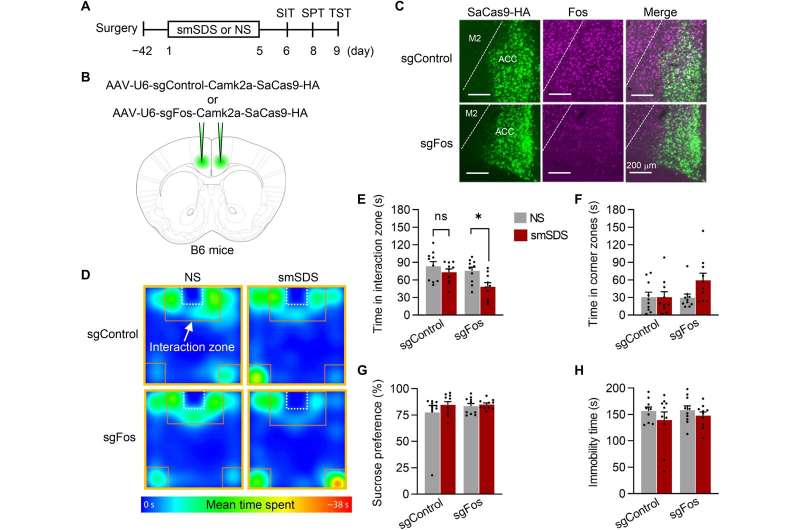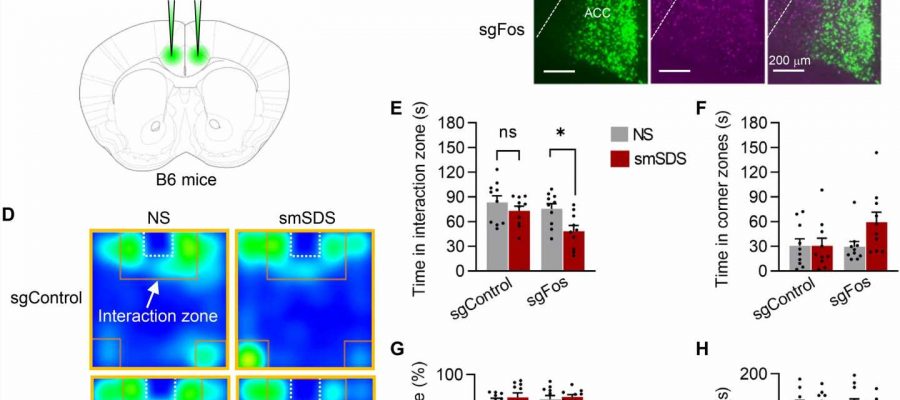
A team of neurobiologists at Kyoto University Graduate School of Medicine, working with a pair of colleagues from the RIKEN Center for Brain Science, both in Japan, has found that mice with lower levels of Fos (short and medium-chain sugar molecules that are indigestible in the body) in their brains tend to be more susceptible to depression related to stress than mice with higher levels of the chemical. In their study, reported in the journal Science Advances, the group stress-tested mice and then tested levels of Fos in their brains.
Prior research has shown that people respond to stressful situations in different ways—some shrug them off while others tend to suffer longer-term repercussions, such as the development of depression. Such scenarios suggest that some forms of depression may have a genetic link. Prior research has also shown that mice have similar differences.
In this new effort, the researchers placed several mice into stressful conditions for nearly a week. They then separated them into two groups based on whether or not they became depressed due to the stress. Next, the researchers dissected the brains of mice in both groups looking for differences. They found that the mice that were more susceptible to depression had much lower levels of Fos in their brains.
The team then edited the genes responsible for expression of Fos to reduce levels in mice not susceptible to depression and found that doing so made them more susceptible to depression after stress testing. Next, the team studied brain tissue from humans that had been diagnosed with major depressive disorder—they found that they also had lower levels of Fos in their brains, suggesting that the level of the molecules in their brain may be a marker for depression susceptibility.
The team next plans to look for therapies that can be used to increase levels of Fos production in the brain to reduce susceptibility to depression due to stress—and then to test them to see if they might help patients suffering from severe forms of the disease.
More information:
Hiromichi Inaba et al, GPCR-mediated calcium and cAMP signaling determines psychosocial stress susceptibility and resiliency, Science Advances (2023). DOI: 10.1126/sciadv.ade5397
Journal information:
Science Advances
Source: Read Full Article
